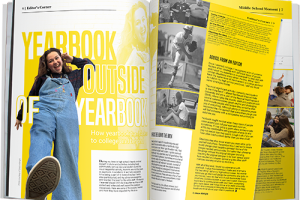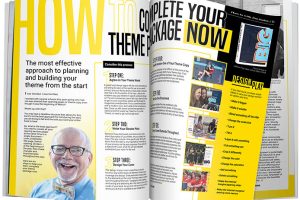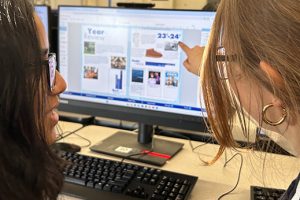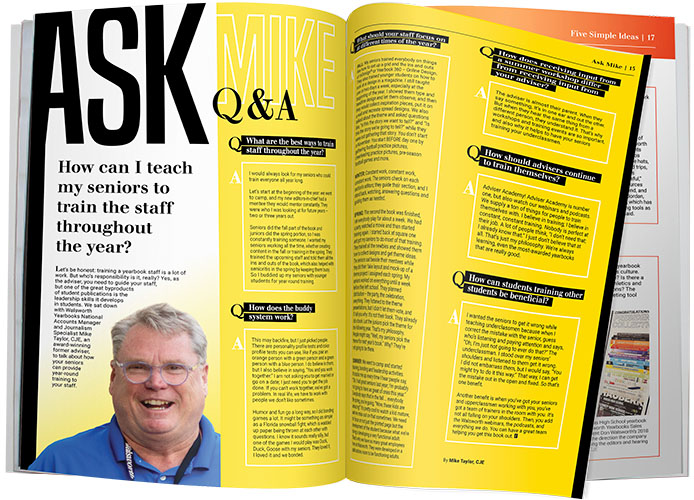
How Can I Teach My Seniors To Train The Staff Throughout The Year?
Let’s be honest: training a yearbook staff is a lot of work. But who’s responsibility is it, really? Yes, as the adviser, you need to guide your staff, but one of the great byproducts of student publications is the leadership skills it develops in students. We sat down with Walsworth Yearbooks National Accounts Manager and Journalism Specialist Mike Taylor, CJE, an award-winning former adviser, to talk about how your seniors can provide year-round training to your staff.
What are the best ways to train staff throughout the year?
I would always look for my seniors who could train everyone all year long.
Let’s start at the beginning of the year: we went to camp, and my new editors-in-chief had a mentee they would mentor constantly. They were who I was looking at for future years – two or three years out.
Seniors did the fall part of the book and juniors did the spring portion, so I was constantly training someone. I wanted my seniors working all the time, whether creating content in the fall or training in the spring. They trained the upcoming staff and told them all the ins and outs of the book, which also helped with senioritis in the spring by keeping them busy. So I buddied up my seniors with younger students for year-round training.
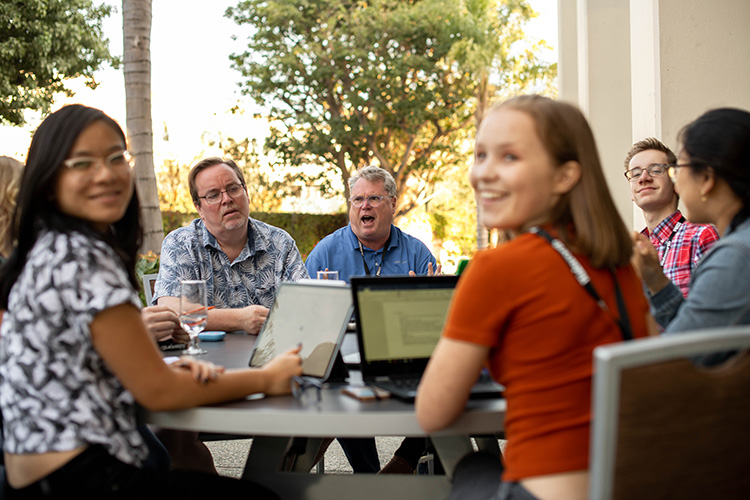
How does the buddy system work?
This may backfire, but I just picked people. There are personality profile tests and color profile tests you can use, like if you pair an orange person with a green person and a green person with a blue person. I do believe in them, but I also believe in saying, “You and you work together.” I am not asking you to get married or go on a date; I just need you to get the job done. If you can’t work together, we’ve got a problem. In real life, we have to work with people we don’t like sometimes.
Humor and fun go a long way, so I did bonding games a lot. It might be something as simple as a Florida snowball fight, which is wadded up paper being thrown at each other with questions. I know it sounds really silly, but one of the games I would play was Duck, Duck, Goose with my seniors. They loved it, I loved it and we bonded.
What should your staff focus on at different times of the year?
Fall: My seniors trained everybody on things like how to set up a grid and the ins and outs of InDesign® or Yearbook 360 – Online Design. They also trained younger students on how to look at a design in a magazine. I still taught one or two days a week, especially at the beginning of the year. I showed them type and headline design and let them observe, and then they would collect inspiration pieces, put it on a wall and recreate spread designs. We also talked about the theme and asked questions like, “Is this the story we want to tell?” and “Is this the story we’re going to tell?” while they were out gathering that story. You don’t start in November. You start BEFORE day one by gathering football practice pictures, cheerleading practice pictures, pre-season football games and more.
Winter: Constant work, constant work, constant work. The seniors check on each section’s editors; they guide their section, and I stand back, watching, answering questions and guiding them as needed.
Spring: The second the book was finished, I let everybody play for about a week. We had a party, watched a movie and then started training again. I started back at square one and got my seniors to do most of that training. They trained all the newbies and showed them how to collect designs and get theme ideas. The seniors sat beside their mentees while they did their fake layout and mock-up of a theme project I assigned each spring. My seniors worked on everything until a week before they left school. They planned distribution – the party, the celebration, everything. They listened to the theme presentations, but I didn’t let them vote, and I’ll tell you why: It’s not their book. They already did a book. Let the juniors pick the theme for the following year. That’s my philosophy. People might say, “Well, my seniors pick the theme for next year’s book.” Why? They’re not going to be there.
Summer: We went to camp and started training, bonding and leadership activities. It cracks me up every time I hear people say, “Oh, I had great seniors last year; I’m probably not going to have as great of ones this year.” Everybody says that in the fall … everybody. By spring, you’re going, “Wow, these kids are amazing!” It’s pretty cool to watch a kid mature, and we miss out on that sometimes. We need to focus on not just the printed page but the development of the student because what we’re doing is developing a very functional adult. That’s why we have so many great employees here at Walsworth. They were developed in a publications room to be functioning adults.
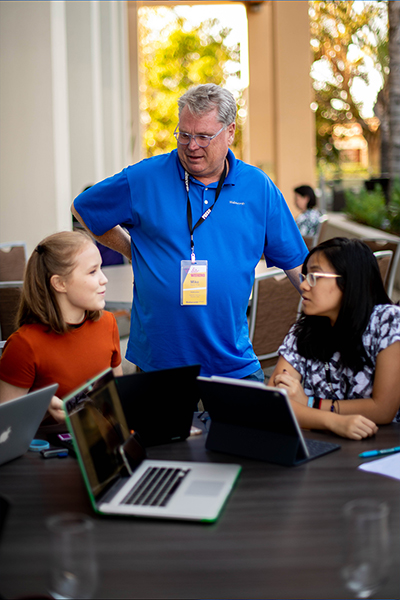
How does receiving input from a summer workshop differ from receiving input from your adviser?
The adviser is almost their parent. When they say something, it’s in one ear and out the other. But when they hear the same thing from a different person, they understand it. That’s why workshops and training events are so important, and also why it helps to have your seniors training your underclassmen.
How should advisers continue to train themselves?
Adviser Academy! Adviser Academy is number one, but also watch our training videos and podcasts. We supply a ton of things for people to train themselves with. I believe in training; I believe in constant, constant training. Nobody is perfect at their job. A lot of people think, “I don’t need that; I already know that.” I just don’t believe that at all. That’s just my philosophy. We’re always learning, even the most-awarded yearbooks that are really good.
How can students training other students be beneficial?
I wanted the seniors to get it wrong while teaching underclassmen because when I correct the mistake with the senior, guess who’s listening and paying attention and says, “Oh, I’m just not going to ever do that?” The underclassman. I stood over my seniors’ shoulders and listened to them get it wrong. I did not embarrass them, but I would say, “You might try to do it this way.” That way, I can get the mistake out in the open and fixed. So that’s one benefit.
Another benefit is when you’ve got your seniors and upperclassmen working with you, you’ve got a team of trainers in the room with you. It’s not all falling on your shoulders. Then, you add the Walsworth webinars, the podcasts, and everything we do. You can have a great team helping you get this book out.

